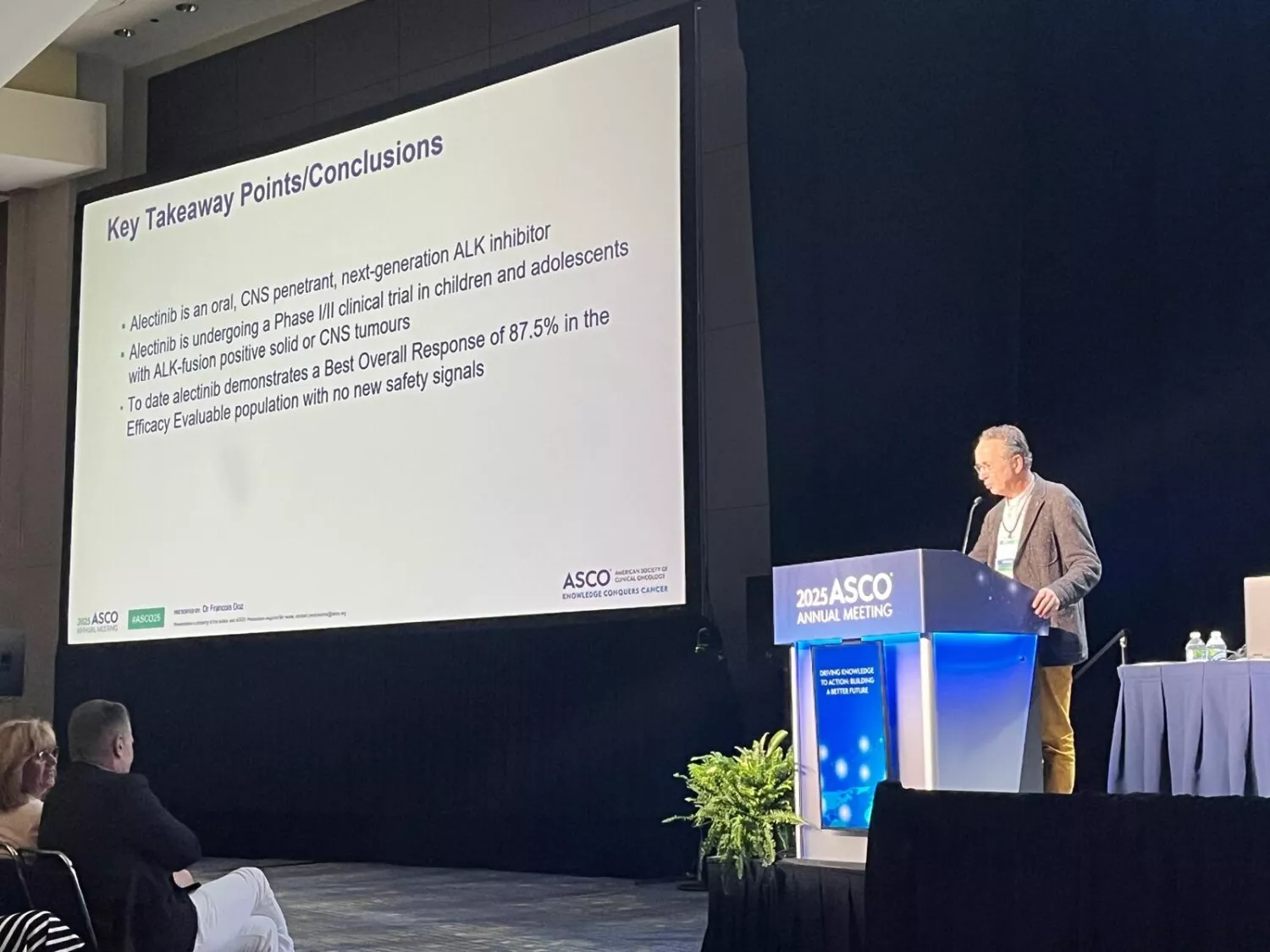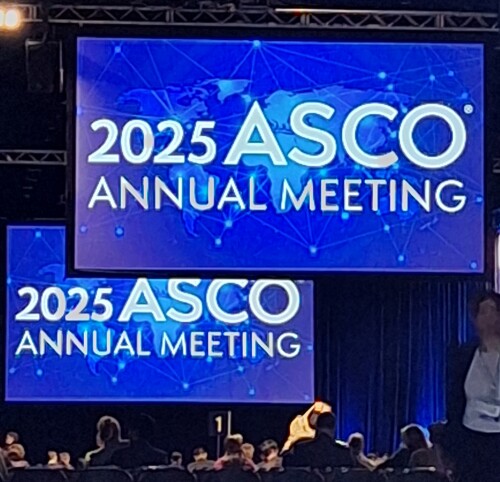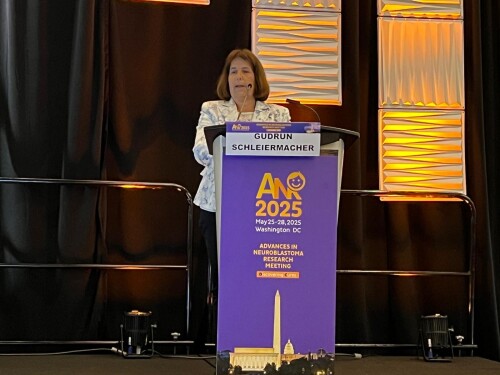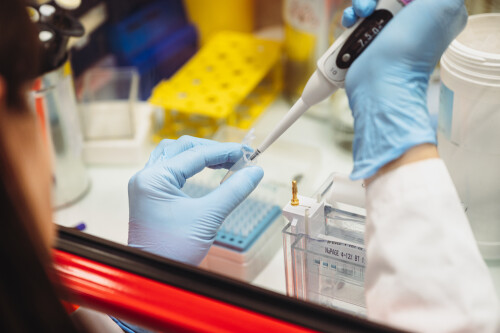In children and adolescents, malignant tumors with fusions in the ALK gene - such as certain high-grade childhood gliomas and certain sarcomas - are cancers of poor prognosis. Inflammatory myofibroblastic tumors (non-malignant but locally invasive) also often present this type of fusion. With less than 10 cases per year in France, these pediatric cancers are very rare.
In this context, alectinib is a new generation highly-specific oral inhibitor of the oncogene ALK. ALK inhibitors have been evaluated in certain cases of childhood tumors: anaplastic large cell lymphomas (presenting an ALK fusion) and certain cases of neuroblastomas (in case of mutation or amplification of ALK), but not in rare tumors of the central nervous system, sarcomas, IMT or other rare tumors with ALK fusion.
An early trial revealing good tolerance and very promising efficacy results
The IMatrix Phase I/II multicenter study aims to evaluate the safety and efficacy of alectinib in patients under 18 years of age with solid or central nervous system tumors with ALK fusions. Another objective of the study: to confirm the recommended dose for continuation in phase 2 of the clinical trial and to collect the pharmacokinetic data of the drug.
"Alectinib has been well tolerated in young patients presenting these tumors with ALK fusion, which are very rare and difficult to treat. And above all, the effectiveness results, although still very preliminary, are promising. By demonstrating a favorable benefit-risk profile, we will work to continue the clinical evaluation of this drug ", declares Professor Francois Doz.
A total of 22 children took part in the study. The clinical effectiveness results are very good: the majority of patients showed an anti-tumor response (an overall response rate of over 87.5% in 16 patients, stabilization of the disease for 2 children). Moreover, alectinib has a favorable safety profile in these pediatric patients.
|
The ALK gene: pioneering research at Institut Curie
The teams of Institut Curie have acquired international expertise in the study of the ALK gene (for Anaplastic Lymphoma Kinase) and its abnormalities, at the origin of certain pediatric cancers. Thus, the "anti-ALK" inhibitors constitute a therapeutic strategy against different types of tumors, in particular pediatric ones. It was in 2008, at Institut Curie, that Dr. Olivier Delattre, Director of SIREDO and Dr. Isabelle Janoueix, Research Director at Inserm and team leader at Institut Curie, highlighted the ALK gene and its involvement in neuroblastoma (the most common extracranial solid malignant tumor in children). Since then, research has continued to advance in the field, in particular, thanks to the work of Dr. Gudrun Schleiermacher, pediatrician and Deputy Director for Translational Research at the SIREDO Center of Institut Curie. In neuroblastomas, mutations or amplifications of the ALK gene are observed most often, while fusions of the ALK gene are extremely rare in this pathology. The IMatrix-alectinib study presented at ASCO 2025 concerns children with solid tumors and tumors of the central nervous system with fusion of the ALK gene. Institut Curie treats these cancers and has all the resources to study, scrutinize, and analyze ALK fusions, in particular through the somatic genetics unit within the pathology department of Institut Curie. "The strength of Institut Curie, and of the SIREDO Center for Pediatric Cancers, is this constant dialog between fundamental, translational, and clinical research. It is this virtuous synergy that makes it possible for us to innovate and accelerate research for our young patients," concludes Professor Francois Doz. |
| => Alectinib in children and adolescents with solid or CNS tumors harboring ALK-fusions: A data update from the iMATRIX alectinib phase I/II open-label, multi-center study. Oral abstract session - Pediatric Oncology, May 31, 2025. Pr François Doz |
[1] The SIREDO Center (Care, Innovation, Research, in Oncology of Children, Adolescents and Young Adults) of Institut Curie is one of the largest European centers for care and research on childhood, adolescent, and young adult cancers. Every year, more than 700 young patients, including 390 new patients, are cared for within SIREDO.



